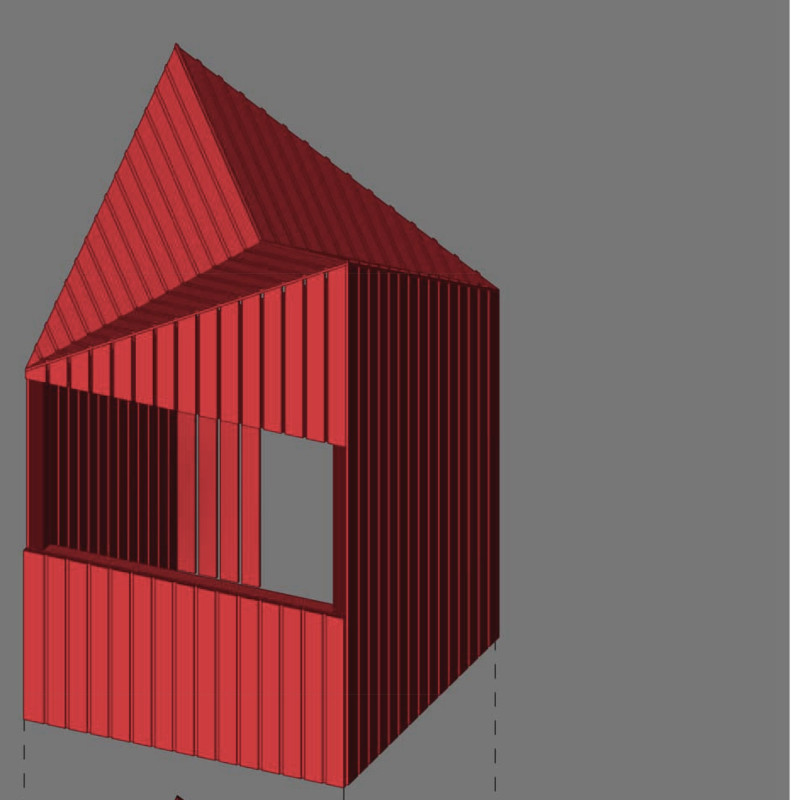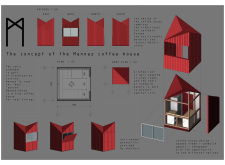5 key facts about this project
The Mannaz Coffee House is located in Northern Europe and represents a fusion of traditional Scandinavian architecture and modern design. It serves as a community hub, focusing on functionality while embracing cultural history. The design concept captures the essence of the region, making the coffee house not just a place for beverages, but a reflection of local identity.
Cultural Significance
The name “Mannaz” derives from the runic alphabet and means "man" or "person." This choice establishes a connection to Scandinavian heritage. It gives the coffee house historical depth, creating a space that resonates with visitors and reflects local customs and traditions. The design evokes a sense of shared history, allowing patrons to engage with the past while enjoying the present.
Architectural Form
A pitched roof is a vital feature of the building, designed to handle the heavy snow loads common in the area. This choice not only ensures safety but also aligns with traditional roof designs found throughout Northern Europe. The form maintains practicality, blending well with its surroundings and contributing positively to the local landscape.
Material Selection
The commitment to sustainability is evident in the materials chosen for the construction. A wooden frame promotes a natural aesthetic while ensuring eco-friendly practices. Sandwich panels are used to enhance insulation, making the structure well-equipped to deal with cold temperatures. The exterior features sandpaper finishes that provide a tactile quality, supporting the overall modern yet organic look of the building.
Security Measures
Functional aspects such as anti-vandal shutters increase safety for users while also allowing for flexible interaction with the outside environment. These features help create a welcoming space that feels secure. Inside, the design is inviting, encouraging patrons to linger while enjoying their time in the coffee house.
The combination of a sloping roof and overhanging eaves casts dynamic shadows that change throughout the day, adding an engaging visual aspect. This feature emphasizes the relationship between light and space, enhancing the overall experience for those who visit.


















































